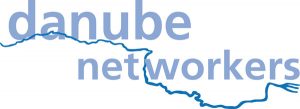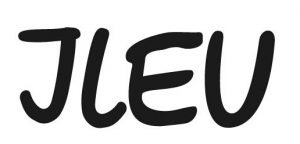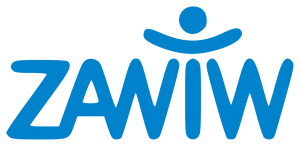I am an Active Member of Multinational Society (I’m Active+)

Aim
There is need to increase the employability of EU population, with special attention on activating women and effective integration of legal female immigrants in the labour market. The project was focused on integration of female immigrants from third countries in EU member states society and labour market. I am an Active Member of Multinational Society, Erasmus+ KA2 project tried to achieve a reduction in number of low-skilled women immigrants and facilitation of the validation of non-formal and informal learning by fostering the assessment of key competencies, including basic skills and transversal skills. The main objective of the project was to promote social integration of women who are legal migrant third country nationals with the special intention to integrate them into the labour market. The project has developed the intercultural dialogue between the mentioned target group and other EU citizens. The project promoted social integration of legal immigrant women, with special intention to integrate them into the labour market and to open for them new possibilities for intercultural dialogue between the mentioned target group and other EU citizens. Turkish partner has shown the extreme need for such programme in Turkey, since they have real issues with internal and external immigrants and as an EU candidate country they need to follow the EU legislation and Declaration of human rights and the Treaty of EU.Full Description
The project I am Active strived to achieve two main intellectual outputs: methodology and guidelines for implementation of training the trainers programme and curriculum and recommendations of the programme for promoting social integration and development of intercultural dialogue with women third country nationals – stressing their integration into labour market), partners used different methods before starting working with legal migrant women.
Each partner made their own research that involved analysis and comparison of the current state in their countries that were justified by numbers and facts from different sources (e.g. Eurostat and national institutions) with little regard to the past.
This analysis and comparison included researching activities about characteristics of migrants, languages spoken by migrants, indicators of immigrant integration, policy debates on EU level, EU legislation in the field of immigration, the common EU approach to managing legal immigration, the EU and asylum, EU legislation on labour market and information about labour market needs and opportunities, current situation on the EU labour market, labour shortages, skill shortages, occupational shortages, EU adult education legislation and policies, the legal framework for educational cooperation in the European Union, EU adult learning policy goals in the period 2010-2020, policy recommendations and guidelines for the field of social integration of immigrants, support services in adult education, legislative background on recognition and validation of informal and non-formal learning, suggested methods to be used in the process of recognition and validation of non-formal and informal learning, general guidelines for the implementation of the curriculum, recommendations for the implementation of individual curriculum modules.
Short-term staff training program (train the trainer course) was prepared as an intensive educational program for 15 future trainers from partners organisations who were prepared to work with legal migrant women by special developed curriculum for migrants. This program lasted for 5 days and participants have strengthened their professional knowledge and skills with new teaching methods like dealing with prejudice by world café method, how to make personal education plan, guidance, informing and counselling, learning to learn competence, NLP methods and techniques – practical tips for classroom use, identification and validation of informal and non-formal learning – tools, in-classroom use of ICT tools and materials, interculturality and key characteristics of migrant learners, practical tips for classroom use: sustainability – a universal topic, detailed instructions for pilot implementations of the program. Partners have made a curriculum proposal that served organizations as a basis for adapting the curriculum to their needs and the needs of migrants. This curriculum consists from seven modules such as learning of the official language of the country of residence, introduction of the EU and country of residence, organised sightseeing and field trips, workshops on integration into the labour market, ICT workshops, organised visits to institutions and employers, in-company training. The duration of the program is 80 hours of theory and 80 hours of in-company training, that enables them to apply newly acquired knowledge in order to help them have better social integration and integration to countries labour market.
Project partners:
- LUNG -Ljudska univerza Nova Gorica, Slovenia – Project coordinator
- Cooperativa Orso, Italy
- Association pour le Développement des Initiatives Citoyennes et Européennes –ADICE, France
- Public Open University Zagreb Mozaik Kultur, Turkey
Step by Step Explanation
-
1
There are 4 phases with different activities that are running alongside the outgoing management and dissemination of the project, their duration depends on intellectual output and multiplier events:
1. Project preparation phase: preparation and implementation
-
2
2. Project implementation: implementation of activities in connections with intellectual outputs. There were also be some important promotional activities in this phase with the connection to the pilot implementation of the programme, which started at the beginning of follow-up period.
-
3
3. Project follow-up: the main activity of this phase was pilot implementation of the programme and all the coordination activities in connection to mentioned one; these phase in about testing the prepared frameworks of intellectual outputs and also achievement some very important results and impacts of the project. In this phase, the main target group was included and this is the crucial phase of the project.
-
4
4. Project closure: the publishing of two intellectual output (translations, printing, etc.); implementation of all multiplier events and final report and evaluations of the project as; organization and implementation of 1 final transnational project meeting,
Results
Implemented Methods
Teaching by lectures the host country language
This method was developed for female immigrants from third countries who have only basic reading skills in host country language. This method includes improvement of listening, speaking, reading, writing skills of host country language and basic information about culture, heritage, social background and other information needed for social inclusion
=> Each method needs a short description of the specific implementation
In-company training
In-company training enables participants to apply newly acquired knowledge in order to help them have better social integration and integration to countries labour market. This part of the project is important because of integration into the labour market.
In-company training is regular part of continuing vocational education and training and this method is very important for work experience of participants, improvement of their practical skills (vocational, social, language). In this project, this is also part of social inclusion process and improvement of employer’s awareness about their social responsibilities and opportunities for working with immigrants.
Biographical method
This method was included as part of evaluation, detection and recognition of prior learning. Another dimension is social – self-reflection which is not only related to vocational training but also to social and cultural background of participants. This method is used to analyse an individual’s history, present and future, raise his self-awareness and encourage conscious planning of future actions, has positive effect on personal development of an individual. It helps the individual to better understand the importance of events and transitions in his life, become aware of his own identity, recognise and take responsibility for his own life and take an active role in it. Focus is to collecting and analysing the different ways of acquiring knowledge and competence development in different life circumstances and different social situations in which life skills are important
=> Each method needs a short description of the specific implementation



